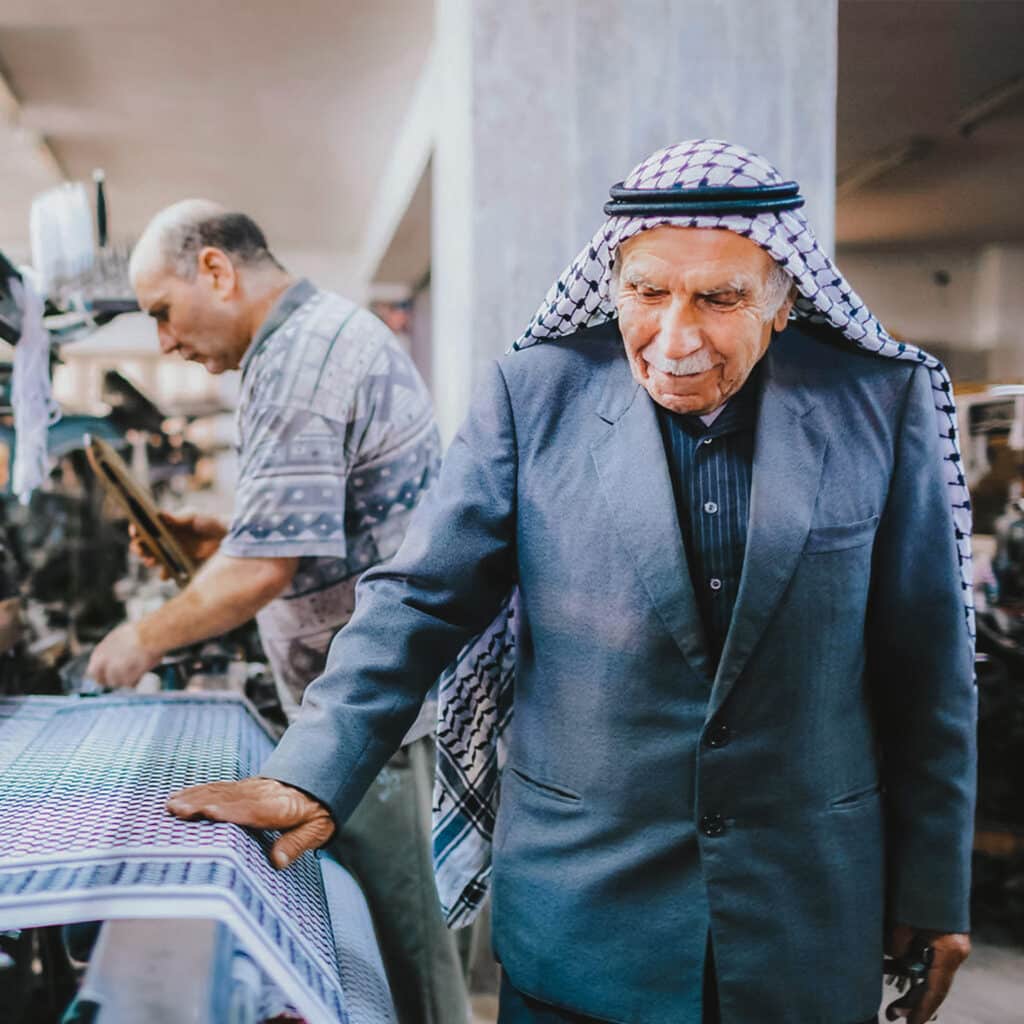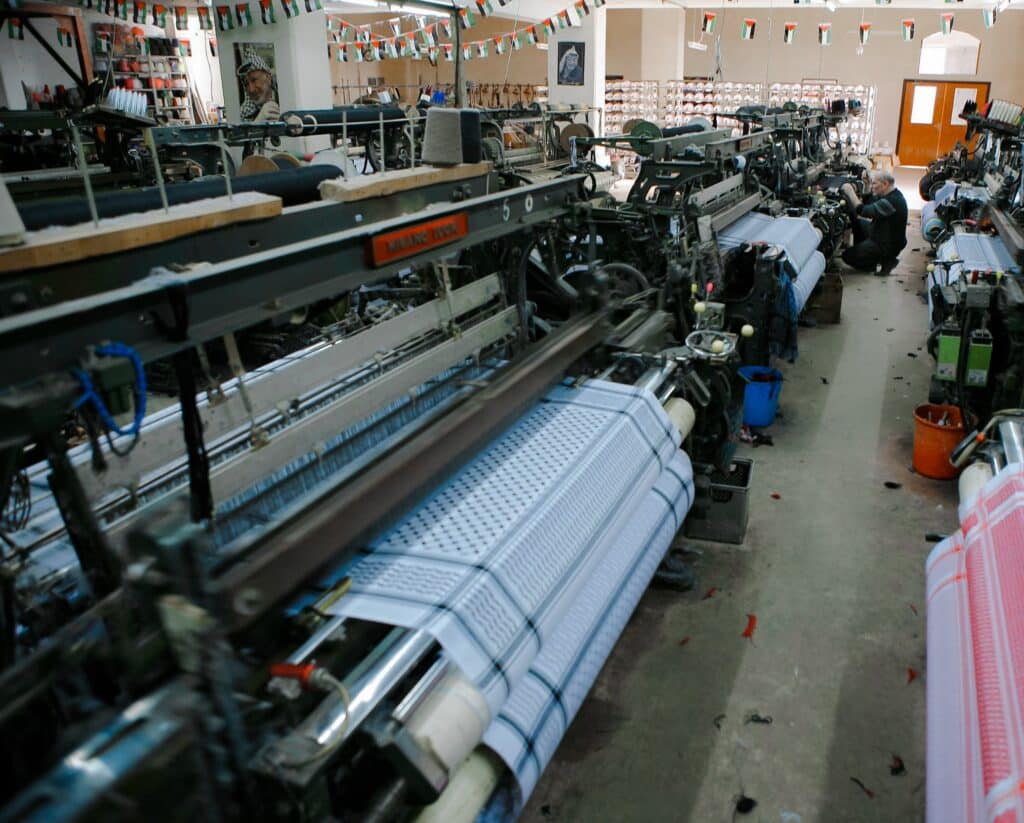
Origins of the Kufiya (Keffiyeh)
The Kufiya (الكوفية) or "Keffiyeh" has a long history in Palestinian culture and identity. Since the first "Arab Revolt" against the British Colonial Empire in the 1930s, this traditional Arab headdress has become a national symbol, synonymous with the Palestinian struggle for freedom.
Traditionally worn by farmers on the head or shoulders, the kufiya was adopted by freedom fighters in resistance to occupation by the British Empire.
Not long after, in solidarity with Palestinian heritage & independence from Israeli occupation, the Kufiya ascended into the symbol of the Palestinian struggle, and became a means to celebrate a simple and human desire: the Palestinian wish and thirst for freedom.
Today, the Palestinian Kufiya, famous for its black-and-white pattern, is worn worldwide by those standing in solidarity with Palestine, in the US, Europe, Malaysia, Indonesia, and, of course, the Middle East.
A means to celebrate a simple and human desire: the Palestinian wish for self-determination. But did you know there's only one manufacturer of authentic Kufiyas left in Palestine?
 The Palestinian kufiya/keffiyeh, famous for its black & white pattern.
The Palestinian kufiya/keffiyeh, famous for its black & white pattern.
The Last Kufiya Factory in Palestine
Keeping tradition alive, the Hirbawi Kufiya is the only kufiya to be authentically made in Palestine. Yasser Hirbawi (shown in picture) opened his historic factory in 1961.
After multiple decades of booming success, production at the Hirbawi factory abruptly fell from over 150,000 kufiyas per year in 1993 to a mere 10,000 in 2010. Why?
Following the signing of the 1993 Oslo Accords and the adoption of a free-market policy, the import of cheap kufiyas made in China began to flood the markets worldwide.
And because of the Israeli occupation, a shrinking Palestinian economy, and the Israeli checkpoints and roadblocks created further hindrances to the production and trade of Palestinian small businesses.
"Of course, business used to be much better. We used to have 15 machines working, and it wasn't enough; we sometimes had to work for 24 hours to cover the demand," says El Taraki Abdel Aziz El Taraki.
"In the 1980s, during the first intifada, production was covering everywhere from Gaza to Jerusalem and Ramallah. Every imported keffiyeh sold here means one less sold for us.
"In the past we were doing very well, it then deteriorated until we only had two machines working in the factory."
Abdel Aziz El Taraki, Interview with BBC (2011).
A Comeback on Social Media
At the brink of collapse, the Hirbawi Factory's comeback marked a transition from local sales in the Middle East to appealing to the rising giant of social media and a growing online audience. The Hirbawi Factory and its partners at Made In Palestine, a German organisation founded by Palestinians, established Kufiya.Org, a website that would serve as the primary means for the Hirbawi Factory to sell its product online.
After supporters of the Palestinian-made Hirbawi Kufiya brought the factory to light, the international community responded. The mission of the Hirbawi Family to preserve the Palestinian Kufiya was invigorated.

Although Yasser Hirbawi passed in 2018, his three sons carry on the determination, passion, and commitment their father instilled in them, the business, and Palestinian supporters worldwide.
The Hirbawi Factory continues its struggle to keep the factory going. “We will continue. This is the fruit of 50 years of continuous work – it’s more than a business. We are trying to be competitive but we want to manufacture a high-quality kaffiyeh.”
Interview with the Guardian, 2010.
An Eternal Symbol of Palestine
The kufiya is more than a clothing item, it is an expression of freedom that is now more relevant than ever. To the world, the kufiya will forever be a symbol of liberty. Those who wear it express their desire to see all people, across the world, live peacefully and with self-determination.
To Palestinians in particular, the kufiya can be said to mean two things:
- Palestine will live on.
- Palestine will be free.




































































